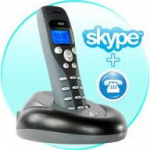 San Francisco — After months of delay in pursuing its “everything web” endeavor, search engine behemoth Google on Wednesday disclosed that it would add offline capability to its Apps suite of cloud-based software, including Gmail, Calendar and Google Docs that can work even when there is no internet connection, an essential component for making the company’s cloud-computing vision more practical.
San Francisco — After months of delay in pursuing its “everything web” endeavor, search engine behemoth Google on Wednesday disclosed that it would add offline capability to its Apps suite of cloud-based software, including Gmail, Calendar and Google Docs that can work even when there is no internet connection, an essential component for making the company’s cloud-computing vision more practical.
Although Google Docs did have the feature on an intermittent basis. Besides, the company is a strong supporter of the cloud-based services, but the practical fact is that at numerous times when Google’s vision falls victim to the practical limits of Internet access.
For Google’s services to compete head-on with Microsoft Office, it must work even in Internet dead zones like subways, airplanes, and rural regions. Hence, it has been testing the technology in-house for long and now its a great news that Google is addressing this issue because networks are simply not always available, and this is the reason why “old” productivity apps like Microsoft Office or Open Office are still so popular.
“Today’s world does not slow down when you are offline, so it is a great feeling to be productive from anywhere, on any device, at any time,” Alex Nicolaou, a Google engineering manager, wrote in a blog post. “We recognize that offline access is important to many of you–especially for Chromebook users who spend most of their time living on the Web.”
{japopup type=”iframe” content=”http://news.ebrandz.com/images/stories/demo/2011/sept/gmail_offline_big.jpg” width=”1024″ height=”600″} {/japopup}
{/japopup}
“Gmail, Calendar, and Docs are three of the key components people really want to use,” said Rajen Sheth, a Google group product manager. “This is something we really wanted to bring offline.”
At present, offline Gmail is an independent Web app that operates only in Google’s Chrome web browser, but Google is looking into making it available to other browsers and empowers people to read and write messages, respond to others’ messages, apply labels and stars, and archive messages, said Alex Gawley, a Google senior product manager.
However, Google does not say why these “web apps” does not work from the get go on other browsers, like Firefox. Nevertheless, none of the actions taken offline do anything outside a person’s computer until a network connection is established and the software synchronizes with Google servers again. The features work with Google Apps, the subscription service that combines Gmail, Google Docs, Calendar, and other services.
A few points:
-
Gmail Offline is an HTML5-powered Chrome Web Store app that looks a lot like Gmail for tablets. You can read, reply, organize and archive mail without a connection. Once installed, it allows you to continue using Gmail after a connection is disrupted.
-
Google Calendar and Google Docs also allow for an online, offline transition. Calendar allows you to view events and RSVP to invitations; meanwhile, Docs allows you to view documents and spreadsheets. (Offline editing isn’t yet ready, the company said.) Both can be activated by clicking the “gear” settings icon in the top right corner of your browser window.
-
IT administrators can deploy Chrome Web Store apps to users en masse by setting up organizational policies for Chrome.
“We are pushing the boundaries of modern browsers to make this possible,” the company writes, “and while we hope that many users will already find today’s offline functionality useful, this is only the beginning.”
“This is the first step,” Sheth said. “We wanted to get something that meets core needs of users and then iterate.”
Google first talked about bringing online functionality to its Web apps at its Google I/O developer conference back in May, and the Google Apps team has now made it a reality. The Gmail Offline app, once installed, can be launched like any other Chrome app from Chrome’s new-tab page. Offline Gmail access is available today; access for Google Calendar and Google Docs will be rolling out over the next week.
Furthermore, offline access also is so vital to the success of Chromebooks, the laptops that use Google’s browser-based operating system called Chrome OS. Without offline productivity apps, Chromebooks’ utility drops significantly for those who plan to use it as more than a machine that stays put in an office or school.
The offline features will work with Chromebooks, Sheth said.
Google first announced offline Gmail capabilities in January 2009 as a Google Labs app.


